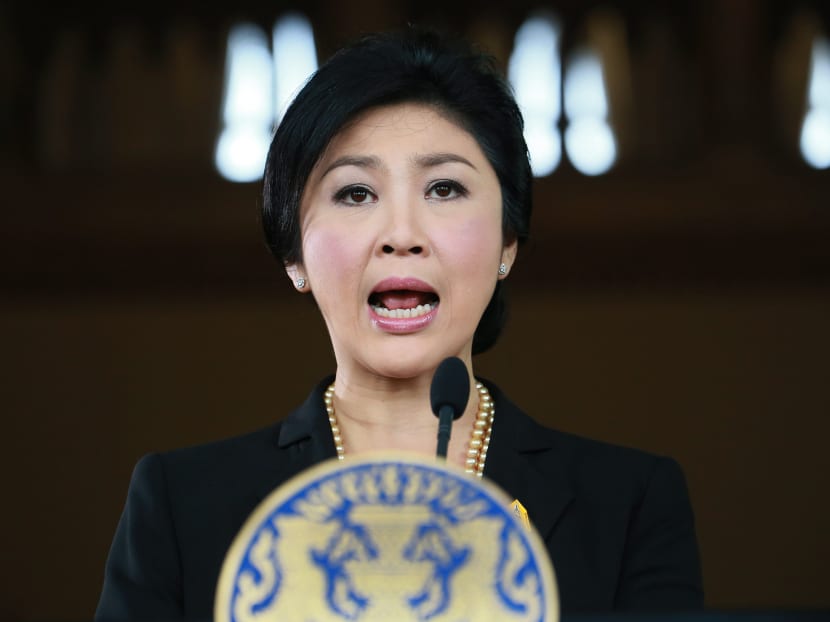Thai Premier survives vote of confidence, but protests continue
BANGKOK — Ignoring a government victory in a vote of confidence in Parliament, protesters in Thailand continued their campaign to shut down government offices, temporarily cutting power yesterday to Bangkok’s police headquarters.

Thai Prime Minister Yingluck Shinawatra speaks at a news conference at the government house in Bangkok on Nov 28, 2013. Photo: AP
BANGKOK — Ignoring a government victory in a vote of confidence in Parliament, protesters in Thailand continued their campaign to shut down government offices, temporarily cutting power yesterday to Bangkok’s police headquarters.
But the number of demonstrators seemed to have declined sharply, with the police putting it at around 15,000, compared with the tens of thousands who took over the Finance Ministry and surrounded key government ministries earlier in the week.
“Their numbers are declining gradually each day,” Mr Piya Uthayo, a spokesman, said by telephone, adding that power had been restored to the police headquarters.
The protesters are seeking to rid the country of the influence of Thaksin Shinawatra, the former Prime Minister who fled into exile in 2008 before he was convicted of abuse of power.
Thaksin’s sister, Ms Yingluck Shinawatra, the country’s Prime Minister, invoked Thailand’s long-serving monarch, King Bhumibol Adulyadej, in urging protesters to go home. The king’s birthday, a national holiday, is on Dec 5, and many protesters are ardent royalists.
“This is a time when people will jointly honour His Majesty the King,” she said in a televised address.
“Please call off the protests for the country’s peace,” she added. “I’m begging you ... because this doesn’t make the situation any better.” Saying that the government wanted to avoid confrontation, she also repeated earlier offers of dialogue with protesters.
Former Democrat Party lawmaker Suthep Thaugsuban, who has led the protests, has already rejected negotiations. He said his goal is to replace Ms Yingluck’s government with a non-elected council — an apparent call for less democracy, not more. He said the change was necessary to uproot the Shinawatra political machine from Thai politics.
Mr Akanat Promphan, a spokesman for the protest leaders, yesterday said Ms Yingluck’s offer for dialogue was “insincere”.
Ms Yingluck’s speech came as her government survived a no-confidence vote in Parliament. The 297-to-134 vote was unsurprising given the governing party’s dominance in Parliament and the allegiance it commands in large swaths of the country — the result of years of policies that have sought to curry favour with rural areas.
Thaksin, who was Prime Minister from 2001 to 2006, when he was deposed by the military, remains popular in the heavily populated north-east of the country but is despised by some who are resentful of his political dominance and who say he has used that power to further his business interests.
He has also been accused of overshadowing the king, who commands strong loyalty after more than six decades on the throne, especially among older Thais.
The protests this week were the largest in the country since 2010, when demonstrations were dispersed by a bloody military crackdown.
With critical coverage in the media and dwindling numbers of demonstrators, the protests appeared increasingly to be losing momentum.
Business leaders, some of whom supported the initial rallies, have shown increased concern and impatience with the seizure of the Finance Ministry and the mobs of protesters crossing the capital with impunity.
In scathing comments reported in Thai media yesterday, Mr Banthoon Lamsam, Chief Executive of Kasikornbank, one of the country’s largest banks, urged politicians in the country to “act like adults”. “Act in a way that shows you love Thailand,” he said, adding that his message was intended “for both sides”. “We must have rules where everybody can work together. We cannot go on this way, rising up to burn the country.” Agencies






